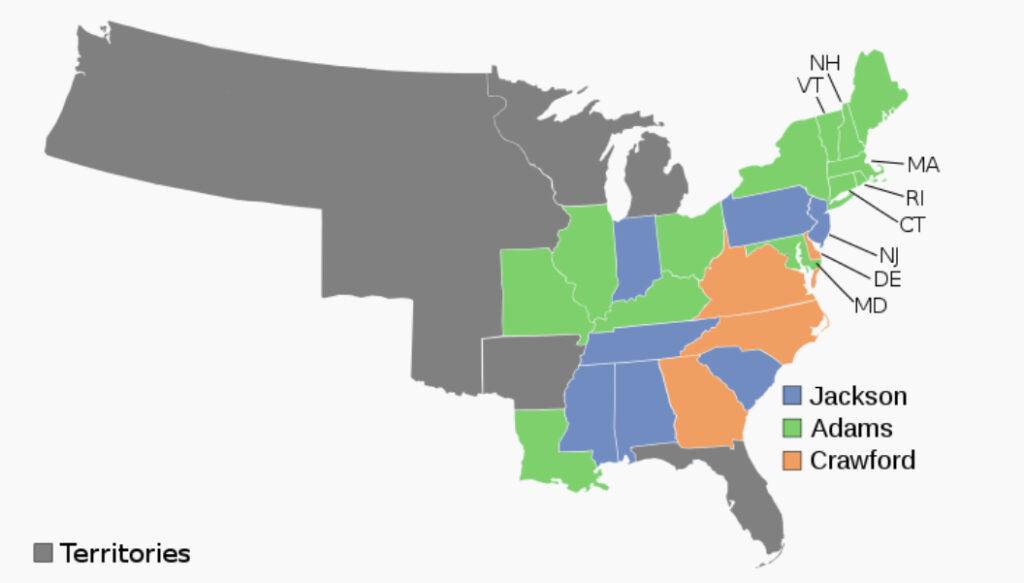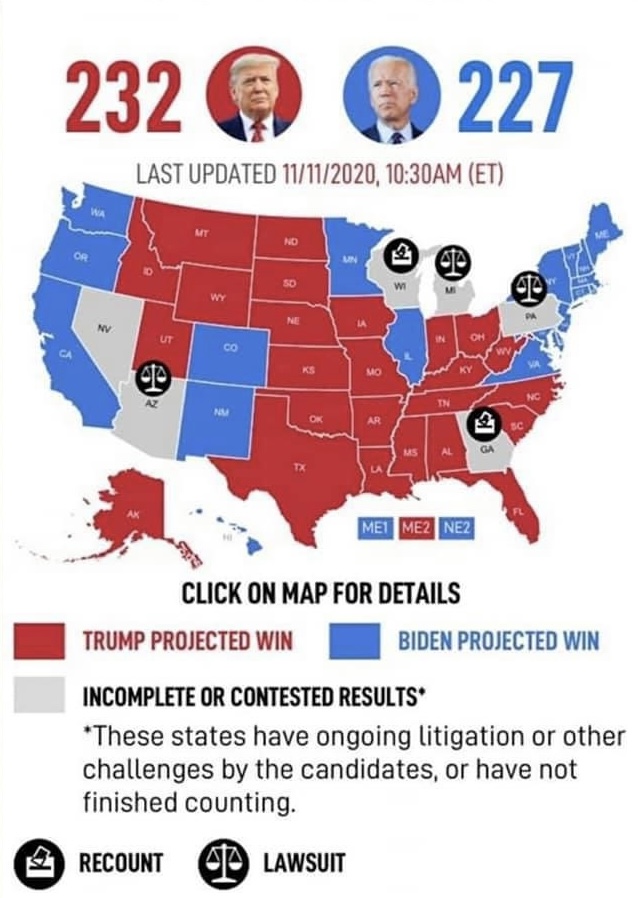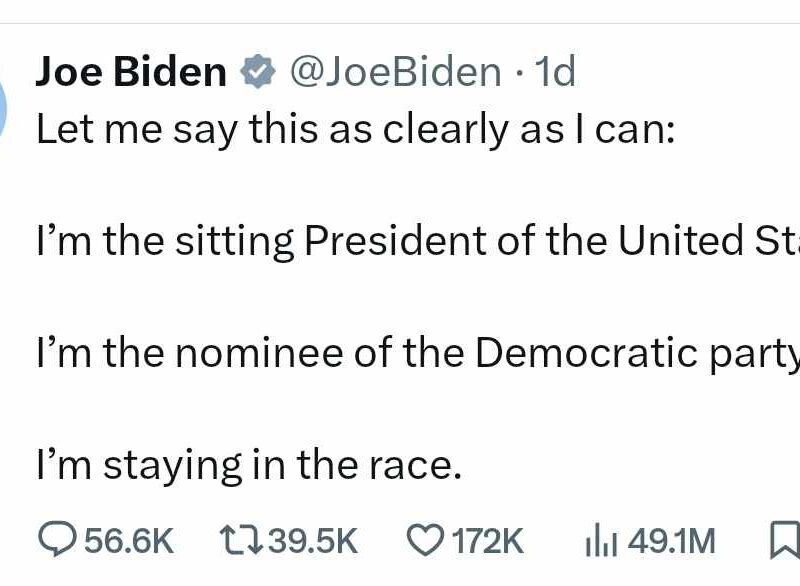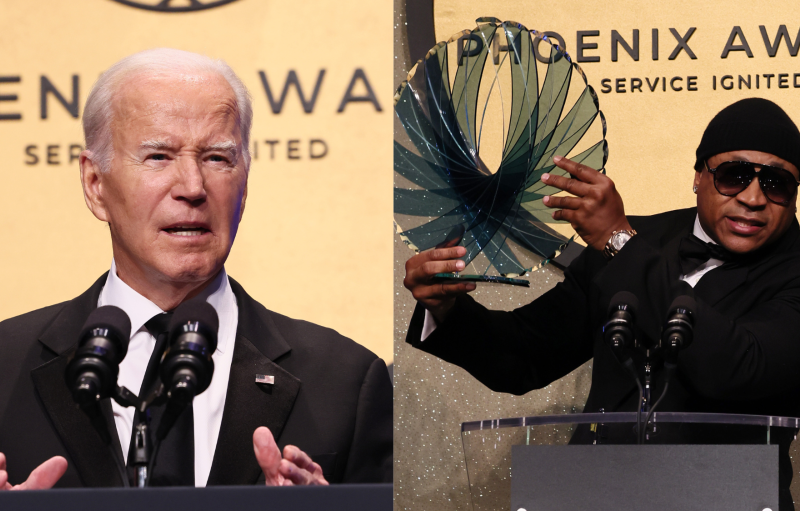2020 Vision: Five Paths to a Trump Victory
Several paths remain open to Donald Trump in his pursuit of the Presidency. If the President refuses to concede and if his popular base continues to support him, he can continue to seek legal action. Thus far, there is every sign that the President and his supporters intend to persist. It then remains for the Trump legal team to prove, beyond any shadow of a doubt, that there was substantial voter fraud. His legal team has given a rather poor performance to date but that does not mean they will be unable to prove their case. With the support of his popular base and solid proof of election fraud, there are a number of means by which the President can win a second consecutive term as President.
Interested in learning more about Israel and current events in the Middle East? Visit Inside Israel News today!
Proving Fraud
In a recent press conference, the legal team stated their case. They set forth a series of legal challenges based upon affidavits and whistleblower testimony about fraudulent ballots: ballots being delivered in trucks in the early morning after counting had been paused, hundreds of thousands of ballots marked only with Joe Biden’s name, and infamously, the exclusion of Republican poll watchers. There is the matter of cured ballots that creates a distinct legal inequality between voters in different regions of Pennsylvania, as one significant legal case alleges. Changes to the election laws that were not approved by the state legislature present another significant case.
Read the latest from Tom Del Beccaro: The End of the Electoral College would lead to the breakup of the United States.
Sydney Powell, distanced from the Trump team but still arguing her case, alleges that the Dominion voting system, built upon the Smartmatic software developed in Venezuela, is easily hacked and vote counts can be adjusted. If any or all of these claims can be proven in court, they might lead to a change in the election results in one or more states. All of President Trump’s paths to victory from here rely upon the ability to prove substantial voter fraud and require the cooperation of the courts, especially the nation’s highest court.
Path #1: Correcting Election Results
If voter fraud can be proven in the courts, the Supreme Court may be willing to invalidate some of the ballots cast in a given state based upon the legal arguments offered. Late ballots, those received after election night, are especially suspicious and present an easy opportunity for legal action. In Pennsylvania, Associate Justice Samuel Alito has already ordered the segregation of late ballots. Clearly, he believes there is at least some reasonable expectation that a case might be heard about these ballots and it must be clear which ballots were received after the polls had closed. The suspicious ballots marked only for Joe Biden are included in this lot. If the SCOTUS invalidates these late ballots, the vote count in Pennsylvania will change, restoring part of the President’s substantial election night lead and earning the state’s electoral votes for President Trump. A judge has also blocked Pennsylvania from certifying its votes.
With Pennsylvania and two other states, the President can claim a majority of the electoral votes, 270 of 538. There are challenges to this that can be mounted later in the process, so the President will have to continue to struggle through the election process even if the courts intervene. The courts will be reluctant to intervene to this extent and thus the evidence presented will have to be overwhelming. It has been noted that such court intervention is wholly unprecedented. In Florida in 2000 the Bush v Gore decision ended a partial recount on the grounds that it did not provide equal protection of the law to residents in parts of the state not under recount. This did not involve invalidating ballots or changing results. Yet, we find ourselves in unprecedented territory: never before has an election been so blatantly fraudulent. I suppose we should expect the unexpected.

Path #2: State Legislatures
Armed with overwhelming evidence of voter fraud, state legislatures in the effected states could try to appoint electors themselves. The Constitution makes it clear that the state legislatures can appoint electors as they please. It could be argued, however, that in passing laws in the past to appoint electors in accordance with a popular vote, the legislatures have already chosen a method and cannot arbitrarily appoint electors in violation of state laws made in the past. This approach also opens the can of worms that in the future legislatures on both sides may look for excuses to do the same. Given the substantial voter fraud, however, there could be an opportunity to claim that in this one extraordinary case, it is necessary to circumvent the conventional appointment process. This approach is unlikely, and Republican leaders in the state legislatures have already poured cold water on the idea. It is extremely unlikely that the courts would approve of this kind of obvious electioneering, even given the fraud.
There is another approach these states could take that might survive legal scrutiny: these legislatures could vote to block the appointment of electors due to the presence of election fraud. Rather than appoint electors for either candidate the legislatures could simply decide that since their own elections were not fairly or legally conducted, they will not appoint electors based upon the results for either candidate. This could lead to a scenario where neither candidate wins a majority, which is explored below.
Path #3: Invalidating Electors
It is a tall order to ask the courts to invalidate ballots and change the results of an election even in the face of obvious and proven election fraud. It may be a less contentious approach to seek from the courts as a remedy that they simply invalidate the electoral votes from the effected states. In other words, if states have election processes that are insecure, the courts can punish them by preventing their electors from voting for President. The lesson in future being that states should secure their elections so as to ensure that the courts have no cause to invalidate their electors. This offers two possible results: in one instance, if neither candidate has a majority of the electoral vote the election proceeds to a contingent election in Congress; in a second it may be possible for President Trump to win at this stage.
The 12th Amendment states that a candidate for president must receive a majority of the electors appointed rather than the total possible electoral votes. If the six currently contested states are removed from the electoral college the total number of electors appointed is 459 and a majority would then be 230 votes. At present, President Trump has 232 uncontested electoral votes and former Vice President Joe Biden has 227 uncontested electoral votes. The President would thus be the winner of the narrowed electoral college. There is some precedent for this approach given that in the 1864 Election President Lincoln received a majority of the electoral votes in the states then in the Union and appointing electors. The electors of the states then in rebellion who regarded themselves as part of a separate nation, the Confederacy, were not considered even though their states secession was considered invalid.
Lincoln did win a majority of the total electoral votes even if the southern states had been in the Union and voting, but the southern votes were not counted in the election and if Lincoln had won a smaller margin, he would have had a strong argument that the electors of the states in rebellion should not count toward the majority. The argument here is thus plausible that, with the cooperation of the courts, when Congress meets in joint session on January 6th to count the electoral votes they could declare a result based solely upon those electors who were appointed, rather than based upon the total.
Path #4: Congressional Rejection of Electoral Votes
As stated above, at noon on January 6th of the year following a presidential election year, the Congress meets in closed session to count the electoral votes and establish the winner of the election. It is at this point when the President-Elect is actually declared, irrespective of prior media projections. The Vice President counts the votes before a joint session of Congress. Typically, this is a technicality and a procedural ceremony that has little fanfare. In 2001, however, then Vice President Al Gore quashed several challenges to the 2000 electoral college count. Can the joint session of Congress choose to contest the vote and potentially reject votes from certain states?

In this year, again with substantial voter fraud having been proven, Congress could mount an effort to reject or otherwise invalidate the votes of the states whose elections were fraudulent. If the courts invalidate late ballots or otherwise hand victory to President Trump in several states, the Democrats may likewise wish to mount this challenge against those electoral votes. Is there precedent for this extraordinary step? Indeed, there is. In 1864, in the midst of the American Civil War, Congress rejected the electoral votes of Tennessee and Louisiana, some 17 electoral votes in all, because these states were under military occupation. The citizens there voting were those who took an oath to the United States before Army personnel and were thus, essentially, hand picked by officers who answered to the President as Commander-in-Chief. It would have set a very dangerous precedent to count these votes in the election.
Under different circumstances either party in Congress will have a strong incentive to reject the votes of contested states, Republicans if the courts do not intervene and Democrats if they do. It is difficult to predict how this might go depending upon which side feels aggrieved, but again, were in somewhat unprecedented territory. With the Democrats holding a majority in the House, however, even in a joint session of Congress they will hold the majority regardless of how the Georgia Senate runoffs turnout, Democrats will outnumber Republicans narrowly. But if the Senate were, for example, to reject the votes of certain states it might not matter whether the House accepts the votes or not. The courts are going to be as reluctant to intervene in the internal affairs of the legislative branch as they are to be seen to be deciding the results of the election vote counts.
Path #5: Contingent Election
I have written in detail about contingent election in another article, but in short, when none of the candidates wins a majority of the electoral vote or if they tie, the House elects the President and the Senate elects the Vice President. One might despair at this prospect since the Democrats hold a majority in the House, but in this case the House votes as state delegations, with a majority of the states being necessary to elect the President. The Senate votes to elect the Vice President much as they vote on any issue, except that a majority of the total is necessary to elect a Vice President. In this case, with the Senate divided evenly until the Georgia runoffs can be decided, in order to reach the requisite 51 votes, Mike Pence might have to cast a tie breaking vote to elect himself Vice President for four years. In that event, if the House proves unable to elect a president or is delayed, Mike Pence could become Acting President after January 20th until the election is complete.

In the House of Representatives the Democrats will hold a very narrow, razor-thin majority. That said, most Democratic Representatives hail from larger states which can only cast a single vote. Republicans are better dispersed among the states. In the last Congress the GOP held the majority in 26 state delegations, enough to elect a President. The Democrats control just 20 state delegations and 3 are split evenly. In the past, states split evenly abstained from the vote and were counted for neither candidate. Much may hinge on Iowa where the GOP controls 2 seats now of the 4 and may gain a 3rd which would grant the GOP control of that state delegation as well for a 27th state delegation.
It is possible that there could be mischief in the House. The majority will control the rules and the calendar and could try to delay the vote or manipulate it. It is also possible that some Republicans might abandon the President and vote for Joe Biden. That said, most of the likely defectors are from blue states wherein they are unlikely to affect the result. It is also possible, in the face of proven election fraud, that one or two Democrats could vote for President Trump. In the three evenly split states that could offer the President additional state delegations. The result simply cannot be known until the rules are set and ballots are taken.
A contingent election would also afford a truly constitutional election to the Presidency not entirely dependent upon the courts. The 73 million-odd Trump supporters are unlikely to accept an election we feel is fraudulent and the not insignificant number of Biden supporters (between 68 and 78 million depending upon the extent of the voter fraud) are not likely to accept a court-mandated reversal of what they feel to be the election result. A contingent election would offer a legitimate election that both sides could equally commiserate is not ideal, but is preferable to an election decided entirely at the bench. To learn more about the technicalities of a contested Presidential election click here.







